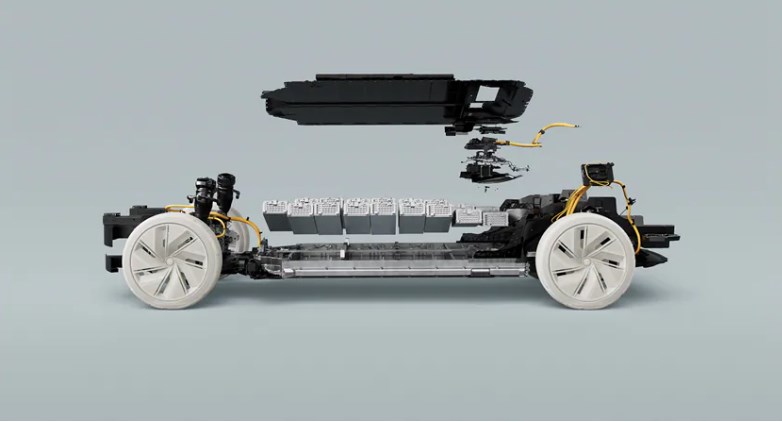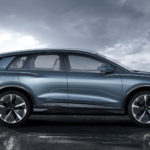As we’re rapidly moving towards becoming a fully electric car company, we’re bringing both the development and production of batteries closer to home.

On our road towards full electrification, we focus on integrating every step throughout the entire battery supply chain into our own operations to make it as smart and efficient as possible. This involves the in-house design, development and production of batteries, e-motors and relevant software, and collaborating with strategic partners where it makes sense.
We have ambitious plans for our next generation of fully electric cars, and we want our future batteries to be tailored to the needs of our customers, having longer range and faster charging times.
To get going, we’ll improve the lithium-ion battery technology on our upcoming second generation of electric cars, starting with our first SUV built from the ground up as an electric-only car.
In June, we announced a planned collaboration with leading Swedish battery company Northvolt to develop and produce sustainable batteries. In the near future, we plan to work with Northvolt to increase the energy density (meaning the amount of energy a battery contains in comparison to its volume/mass) in our batteries by 50 per cent.
By the mid-2020s, we expect to introduce our third generation of electric cars, where we look to both increase range and integrate the battery pack into the floor of the car – the latter will not only save space but improve efficiency as well.
Around the same time, current charging times are expected to be cut almost in half, thanks to better battery technology and continuous improvements to software and fast-charging technology. And to round off our plans for the 2020s, we want to achieve 1,000 kilometres of real driving range later this decade.
“We want to constantly increase the customer benefits of driving a pure electric Volvo car,” said Henrik Green, chief technology officer. “By simplifying the design and integration of our battery cells, we can reduce weight and maximise space, allowing for considerable improvements in battery capacity, range and charging times.”
“We aim to achieve 1,000 kilometres of real driving range later this decade”
While we’ll increase the battery energy in our cars over the coming decade, we’ll also work to continuously reduce the carbon impact of our batteries. In our planned collaboration with Northvolt, we aim to produce battery cells using 100 per cent renewable energy, and we’re working with our other battery suppliers to do the same by 2025.
Reducing the carbon impact of batteries also includes making better use of the valuable material contained in them. Whenever we can, we want to remanufacture or reuse batteries, and we’re also investigating potential second-life applications, such as energy storage.
Where possible, batteries that have reached the end of their lifespan will be recycled at authorised recyclers that are able to offer closed loop recycling of critical materials for use in future batteries. We’ll also continue to zero in on the responsible sourcing of batteries by working more closely with our partners and suppliers, as well as through a wider use of blockchain technology.

Starting with the successor to the XC90, we’ll offer bi-directional charging, allowing customers to offload surplus electricity in their car battery to the power grid. This means electric Volvo drivers can provide energy to the grid when prices and CO2 emissions related to electricity production are at their daily peak, while charging their car when emissions fall.
“We want to offer our customers sustainable pure electric cars that make their lives easier and more enjoyable,” said Henrik Green, chief technology officer. “Through smart innovation and collaboration with key partners, we can give customers what they want – more range, faster charging and lower costs – and further boost widespread adoption of electric mobility.”
Please note: Described features might be optional and the exact customer offer may vary from one country to another, or not (yet) be available in all markets. Contact your local market representative for more detail.
Reference by:







More Stories
Overview of the Audi Q4 E-tron in 2022
Nissan divulges Nissan Cleverly Production line
SANTA ANA, CA. – (Oct. 1, 2021)Yokohama Tire Manufacturing Mississippi Names Philip Calhoun New